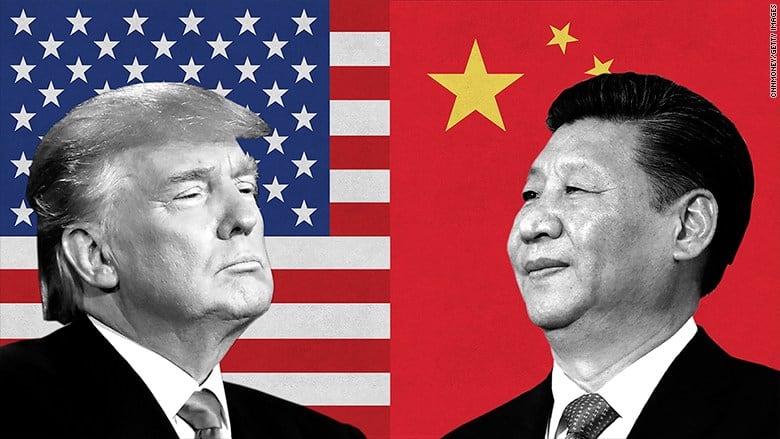Xi chronicled at length the country’s recent achievements, giving special credit to former leader Deng Xiaoping, whose reforms Xi said saved China from the brink of economic collapse following the tumultuous Cultural Revolution
As China celebrated its 40th anniversary of opening its economy to the rest of the world, President Xi Jinping said in his speech that no one can "dictate" China's economic development path.
This remark is seen as a direct answer to US’s rising pressure on the Asian giant to make changes on the economic front amid diplomatic spats and trade war between the two countries.
Alert raised
China’s expanding footprint worldwide through a broad network of infrastructure projects called the Belt and Road Initiative have raised eyebrows.
However, while dismissing any possible threat from his country, Xi said, “China’s development does not pose a threat to any country,” Xi said. “No matter how far China develops, it will never seek hegemony.”
He also stressed the fact that the country pursues a defensive national defense policy.
China’s other achievements
Xi chronicled at length the country’s recent achievements, giving special credit to former leader Deng Xiaoping, whose reforms Xi said saved China from the brink of economic collapse following the tumultuous Cultural Revolution.
Other celebrations of reform and opening up have been criticized by scholars for downplaying the role of Deng, widely considered the architect of the changes, in order to elevate Xi.
This time around, Xi spared no praise for Deng, as he began by remarking on the significance of 1978 — the year Deng implemented his first reforms.
During the ceremony, 100 individuals were recognized as pioneers of reform. The eclectic slate included NBA player Yao Ming, Alibaba founder Jack Ma and Nobel prizewinning scientist Tu Youyou. They received their medals to the tune of “Story of Spring,” a patriotic ballad paying tribute to Deng.
Throughout, Xi emphasized the absolute rule of the Communist Party and its upholding of Chinese sovereignty.
“No one is in a position to dictate to the Chinese people what should or should not be done,” he said. “We will resolutely reform what can and needs to be reformed, and we will resolutely uphold what cannot and does not need to be changed.”
Xi’s speech espoused “above all else,” said Julian Gewirtz, an international affairs scholar at Harvard, “the distinctiveness and absolute correctness of China’s path under the party’s leadership.”
“This was a broad attempt to provide a really positive, confidence-building story of China’s past 40 years and its future,” said Gewirtz, who has written a book about China’s economic reforms.
The address won’t assuage concerned private entrepreneurs and foreign businesses, who had hoped Xi would use the occasion to announce concrete industry-opening measures to shift dominance away from state corporations.
China’s push to dominate the high-tech industry by 2025 is a sore point with Washington and a contributing factor in trade tensions that have seen the world’s two largest economies slap billions of dollars in punitive tariffs on each other’s products this year.
In a move welcomed by global stock markets, President Donald Trump agreed Dec. 1 to postpone more U.S. tariff hikes on Chinese imports for 90 days while the two sides negotiate over American complaints about Beijing’s technology policy.
With inputs from Associated Press
Last Updated Dec 19, 2018, 4:46 PM IST











![Salman Khan sets stage on fire for Anant Ambani, Radhika Merchant pre-wedding festivities [WATCH] ATG](https://static-ai.asianetnews.com/images/01hr1hh8y86gvb4kbqgnyhc0w0/whatsapp-image-2024-03-03-at-12-24-37-pm_100x60xt.jpg)
![Pregnant Deepika Padukone dances with Ranveer Singh at Anant Ambani, Radhika Merchant pre-wedding bash [WATCH] ATG](https://static-ai.asianetnews.com/images/01hr1ffyd3nzqzgm6ba0k87vr8/whatsapp-image-2024-03-03-at-11-45-35-am_100x60xt.jpg)



